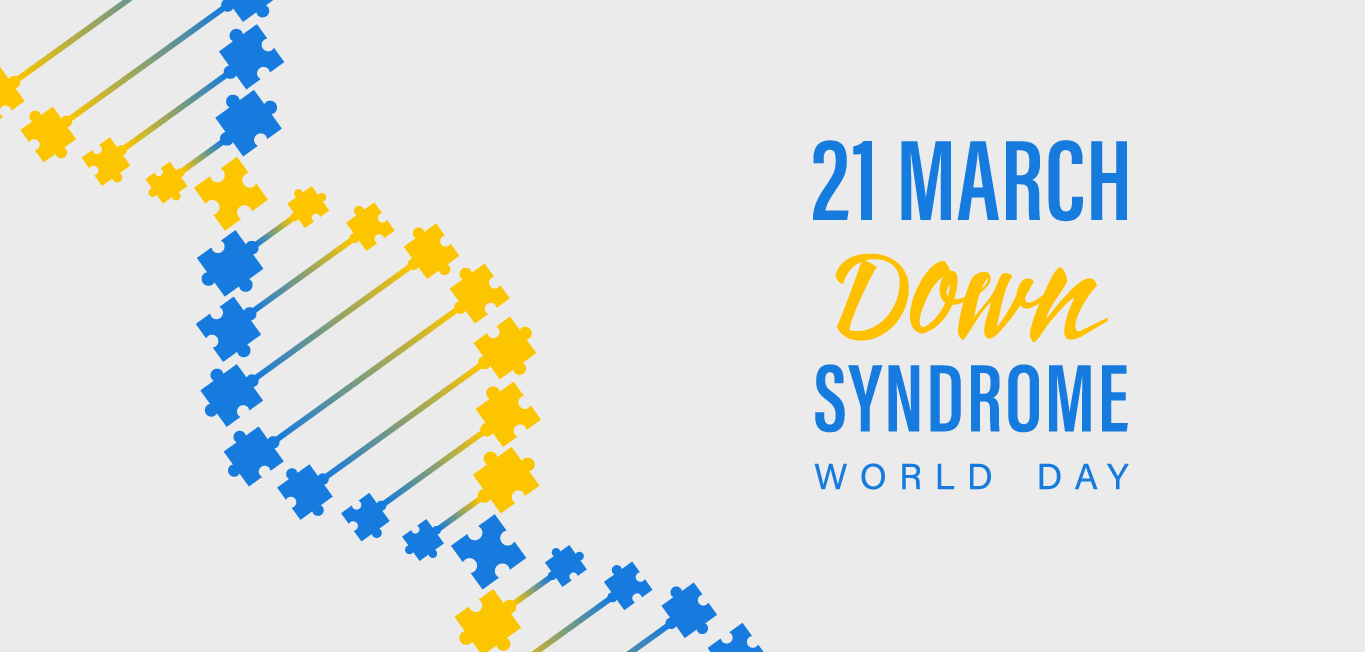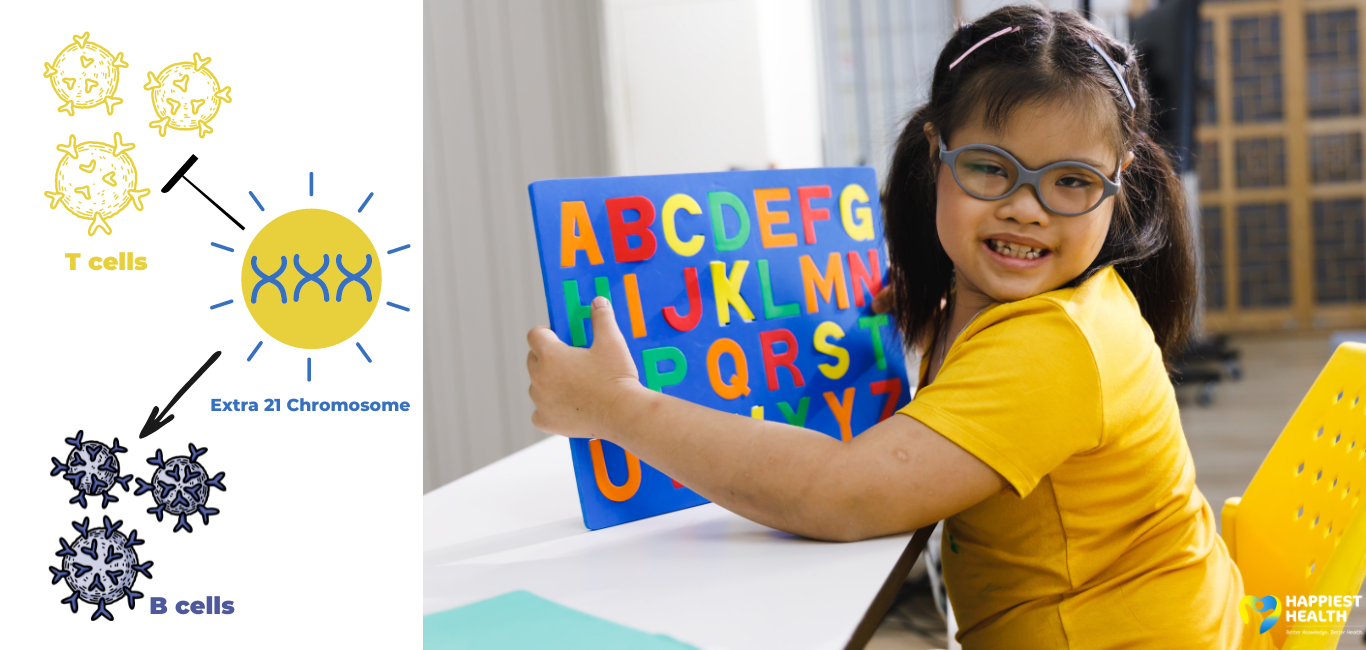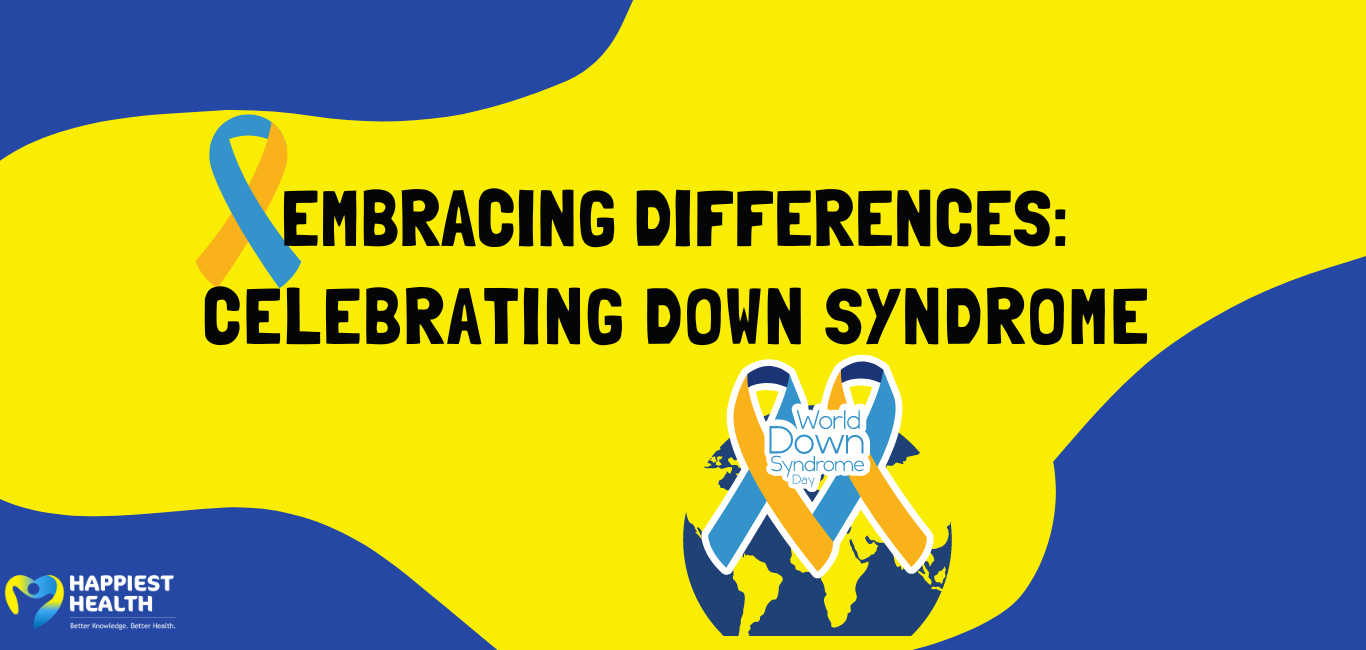
Chris Burke, the 57-year-old American actor famous for his playing ‘Corky’ in the television series Life Goes on, once said, “I have Down syndrome, but Down syndrome doesn’t have me.” Burke was born with a rare neurodevelopment condition called mosaic Down syndrome. His words reflect his tenacity and grit to not let the debilitating condition overcome him.
Down syndrome is a genetic condition caused by a chromosomal abnormality specific to chromosome 21 in an individual. According to a United Nations report, approximately 3,000 to 5,000 children are born with this condition yearly.
Read more: Embracing differences: celebrating Down syndrome
‘Catch 21’
Our genetic blueprints are stored in 23 pairs of different chromosomes, varying in size and shape – one set transferred from each parent. Each chromosome has different genes that play specific roles responsible in the proper development of the human body. Studies have shown that chromosome 21 has about 200-300 genes that primarily produce proteins in the body. Down syndrome occurs when there is an extra copy of a chromosome on the 21st pair.
Other studies have shown that chromosome anomalies arise during cell division, either shortly after fertilisation or in the early stages of embryo development, resulting in alterations to chromosome number, structure or function. The changes lead to the production of faulty proteins in the body, resulting in developmental delays, short stature, poor muscle tone, flattened facial structure, or weak joints.
People with Down syndrome are also susceptible to other neurodegenerative conditions, heart ailments, and infections.
Based on the causes of the abnormality at chromosome 21, Down syndrome is of three types:
- Trisomy 21 –During fertilisation, the addition of an extra chromosome leads to Trisomy 21. Here, the offspring inherits two copies of chromosome 21 from the mother and one from the father. This surplus of genes and their codes translates into faulty protein-making processes. Studies have shown that 95 per cent of individuals with Down syndrome have inherited trisomy 21.
- Translocation –In 3-4 per cent of people with Down syndrome, anomalies occur when genetic material is transferred between chromosome 21 and another chromosome, often the neighbouring chromosome 14. This translocation results in a part of chromosome 21 breaking off and attaching to chromosome 14. It is also an inherited condition that both parents can pass on.
- Mosaic –Mosaic Down syndrome is rare, and only one per cent of people have it, as in Burke’s condition. It occurs due to abnormal cell division during the baby’s development in the womb. Studies have shown that although it is similar to trisomy 21 with an extra copy of a chromosome, not all cells have a third copy of the chromosome.
Risk factors
Although multiple factors can contribute to the likelihood of a child developing Down syndrome, studies have identified some major risk factors:
- Maternal age: Women who conceive after the age of 35 years are at a higher risk of having a baby with Down syndrome than younger mothers. As the mother’s age increases, there are higher chances of cell division errors in the developing foetus.
- Family history: Individuals with a family history of chromosomal abnormalities are at a higher risk of having a child with Down syndrome.
- Carriers of genetic translocation: Either the father or the mother can transfer the translocated gene to the offspring and increase the risk of inheriting Down syndrome.
To quote Brian Skotko, director of the Down Syndrome Program at Massachusetts General:
“People with Down syndrome can be successful in life, love, and work, and they deserve the same opportunities as everyone else.”

















